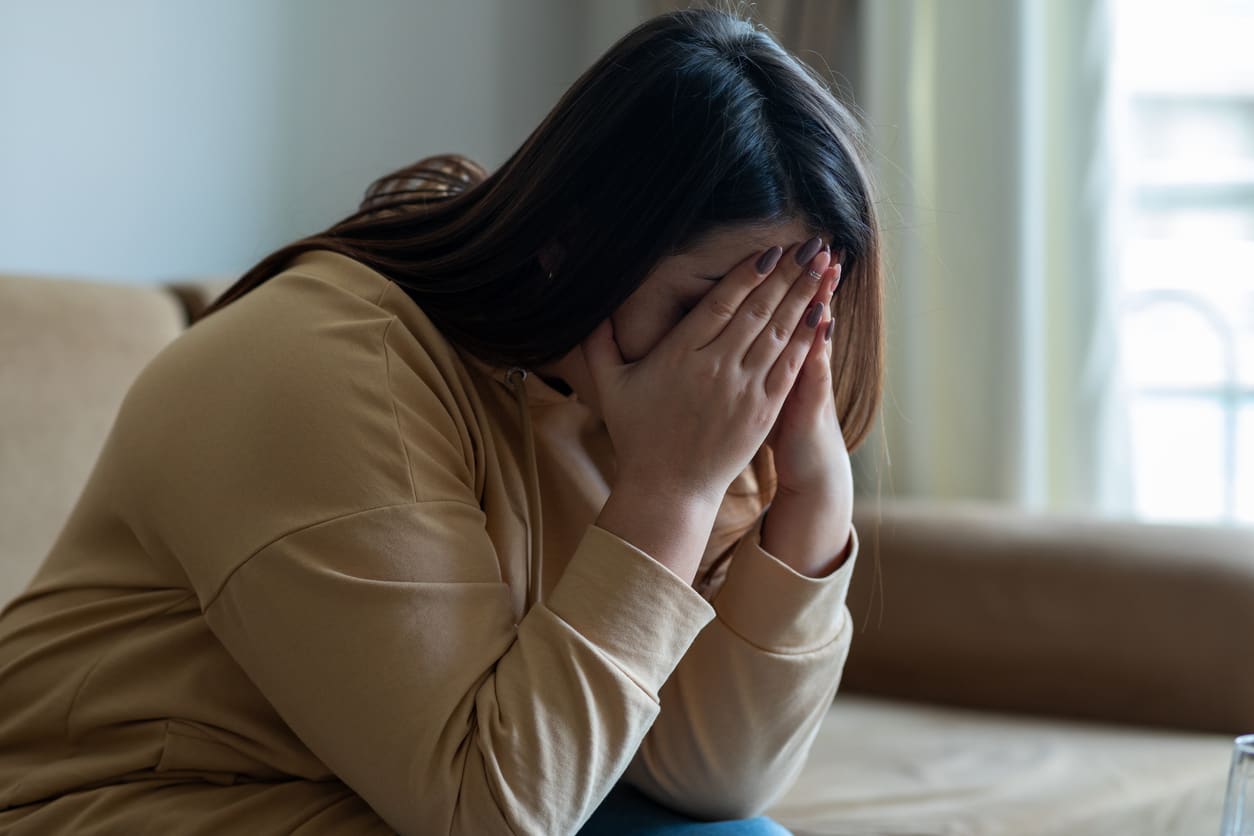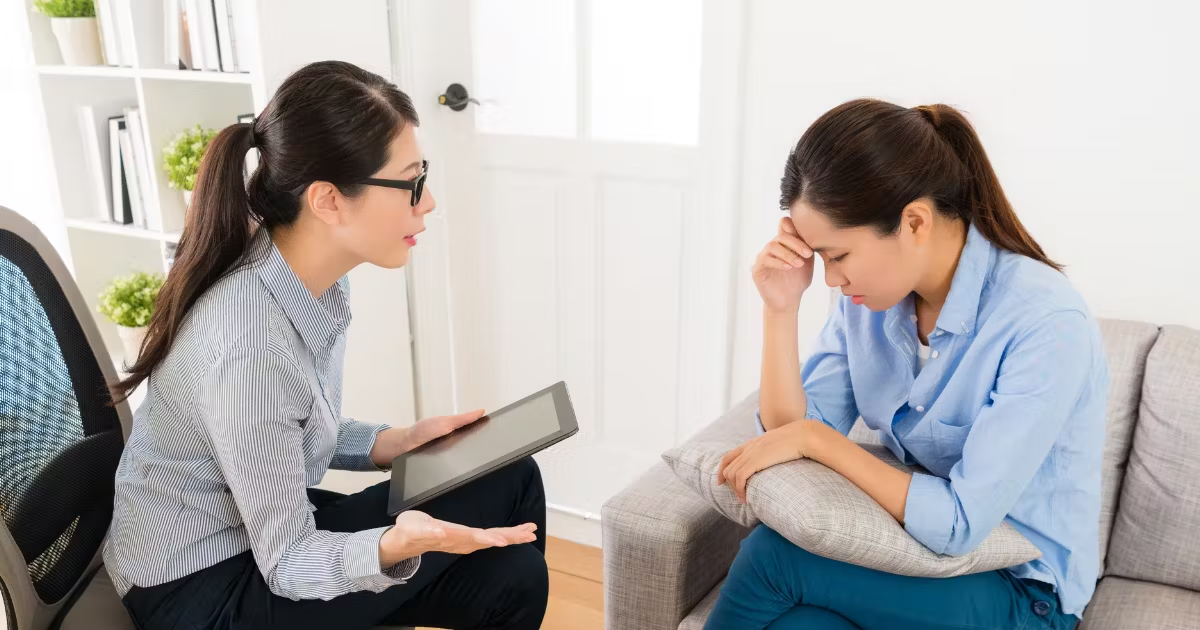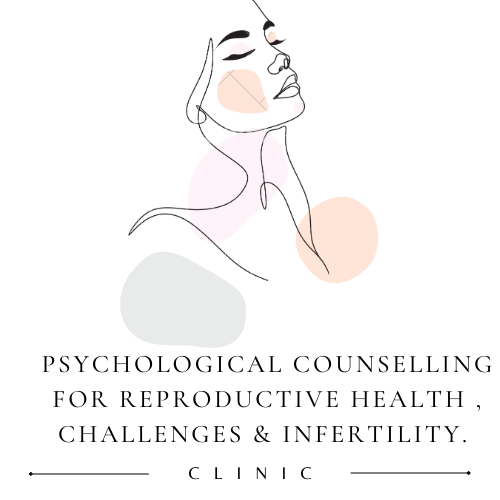
Depressive Disorders & Treatments
Depression is common mental health condition that causes a persistent feeling of sadness and changes in how you think, sleep, eat and act. There are several different types. Depression is treatable — usually with talk therapy, medication or both. Seeking medical help as soon as you have symptoms is essential.
Depression is a mood disorder that can be treated with psychotherapy, medication, and lifestyle changes. Psychotherapy, such as cognitive behavioural therapy (CBT), helps change negative thought patterns, while antidepressant medications can help regulate brain chemistry. Lifestyle changes, including regular exercise, a healthy diet, and maintaining sleep habits, are also crucial components of treatment.
We extend ourselves as competent, compassionate, ethical and caring mental health specialists whose strive for excellence in patient care, community wellness and medical research.
At our clinic, specialists from different interdisciplinary fields come together for treatments of all forms of mood disorders special depressive and bipolar disorders , in a dedicated fashion to design a better life for people and their families.
Given below is a brief descriptive of the nature, various types, causes and treatments for depressive disorders available at our mental heath centre in Udaipur.
Depressive disorders are of various forms and types. Some of the common types of depression are as the following:
- Clinical depression (major depressive disorder): A diagnosis of major depressive disorder means you’ve felt sad, low or worthless most days for at least two weeks while also having other symptoms such as sleep problems, loss of interest in activities or change in appetite. This is the most severe form of depression and one of the most common forms.
- Persistent depressive disorder (PDD): Persistent depressive disorder is mild or moderate depression that lasts for at least two years. The symptoms are less severe than major depressive disorder. Healthcare providers used to call PDD dysthymia.
- You can’t control your responses to situations.
- Disruptive mood dysregulation disorder (DMDD): DMDD causes chronic, intense irritability and frequent anger outbursts in children. Symptoms usually begin by the age of 10.
- Premenstrual dysphoric disorder (PMDD): With PMDD, you have premenstrual syndrome (PMS) symptoms along with mood symptoms, such as extreme irritability, anxiety or depression. These symptoms improve within a few days after your period starts, but they can be severe enough to interfere with your life.
- Depressive disorder due to another medical condition: Many medical conditions can create changes in your body that cause depression. Examples include hypothyroidism, diabetes, infertility, arthritis, multivitamin deficiency, heart disease, Parkinson’s disease and cancer. If you’re able to treat the underlying condition, the depression usually improves as well.
There are also specific forms of major depressive disorder, including:
- Seasonal affective disorder (seasonal depression): This is a form of major depressive disorder that typically arises during the fall and winter and goes away during the spring and summer.
- Prenatal depression and postpartum depression: Prenatal depression is depression that happens during pregnancy. Postpartum depression is depression that develops within four weeks of delivering a baby. The DSM refers to these as “major depressive disorder (MDD) with peripartum onset.”
- Atypical depression: Symptoms of this condition, also known as major depressive disorder with atypical features, vary slightly from “typical” depression. The main difference is a temporary mood improvement in response to positive events (mood reactivity). Other key symptoms include increased appetite and rejection sensitivity.
- Psychotic features: This depression is accompanied by delusions or hallucinations, which may involve personal inadequacy or other negative themes
- Catatonia — Depression that includes motor activity that involves either uncontrollable and purposeless movement or fixed and inflexible posture.
- Postpartum depression : It’s a form that occurs during pregnancy or in the weeks or months after delivery (postpartum). It’s a serious condition and needs to be treated immediately for overall mental and physical health of the mother and the baby.
- Other depression disorders : This includes depression that's caused by the use of recreational drugs/alcohol/tobacco/cannabis , some prescribed medications or another medical condition.
People with bipolar disorder also experience episodes of depression in addition to manic or hypomanic episodes.
Who does depression affect?
Depression can affect anyone — including men, women, couples, singles, children, adults and elderly/older people.
Having certain risk factors makes it more likely that you may develop depression. For example, the following conditions are associated with higher rates of depression:
- Neurodegenerative diseases like Alzheimer’s disease and Parkinson’s disease.
- Stroke.
- Multiple sclerosis.
- Seizure disorders.
- Cancer.
- Macular degeneration.
- Chronic pain.

What causes depression?
Researchers explain multiple causes behind a person’s depression. They think that several factors contribute to its development, including:
- Brain chemistry: An imbalance of neurotransmitters, including serotonin and dopamine, contributes to the development of depression.
- Genetics: If you have a first-degree relative (biological parent or sibling) with depression, you’re about three times as likely to develop the condition as the general population. However, you can have depression without a family history of it.
- Stressful life events & Psychosocial environment: Difficult experiences, such as the death of a loved one, trauma, divorce, isolation and lack of support, can trigger depression.
- Personality factors: Certain people by default of their personality makeup are more prone to fall into depression than others.
- Medical conditions: Chronic pain and chronic conditions like diabetes can lead to depression.
- Medication: Some medications can cause depression as a side effect. Substance use, including alcohol, can also cause depression or make it worse.

Diagnosis
Your doctor(psychiatrist/clinical psychologist) may determine a diagnosis of depression based on:
- Physical exam. Your doctor may do a physical exam and ask questions about your health. In some cases, depression may be linked to an underlying physical health problem.
- Lab tests. For example, your doctor may do a blood test called a complete blood count or test your thyroid to make sure it's functioning properly.
- Psychiatric evaluation. Your mental health professional asks about your symptoms, thoughts, feelings and behavior patterns. You may be asked to fill out a questionnaire to help answer these questions.
- Psychological Tests: Tests for depression include screening questionnaires and psychiatric evaluations administered by healthcare professionals. While there are no physical tests that diagnose depression, a doctor may order blood tests to rule out other medical conditions like thyroid problems that have similar symptoms.
Care at our mental health clinic for depression
Our caring team of mental health experts in Udaipur can help you with your depression (major depressive disorder)-related health concerns. You are just a call away from us .
Treatment for depression
Treatment for depression usually involves a combination of self-help, talking therapies and medicines. The treatment recommended will be based on the type of depression you have.
Medications and psychotherapy are effective for most people with depression. Your primary care doctor or psychiatrist can prescribe medications to relieve symptoms. However, many people with depression also benefit from seeing a psychiatrist, psychologist or other mental health professional.
If you have severe depression, you may need a hospital stay, or you may need to participate in an outpatient treatment program until your symptoms improve.
At PCRH clinic, experts in neurosciences, psychiatry and psychology services use a team approach to evaluate and diagnose your depression. These compassionate psychiatrists, psychologists and other mental health /allied professionals listen patiently to thoroughly understand your concerns and health issues to create a treatment plan suited to your needs.
If you have severe depression, you may be referred to a mental health team made up of psychologists, psychiatrists, specialist nurses and occupational therapists. Here's a closer look at depression treatment options.
1.Medications for treatment for depression
Many types of antidepressants are available, including those below. Be sure to discuss possible major side effects with your mental health doctor or pharmacist.
- Selective serotonin reuptake inhibitors (SSRIs). Doctors often start by prescribing an SSRI. These drugs are considered safer and generally cause fewer bothersome side effects than other types of antidepressants. SSRIs include citalopram (Celexa), escitalopram (Lexapro), fluoxetine (Prozac), paroxetine (Paxil, Pexeva), sertraline (Zoloft) and vilazodone (Viibryd).
- Serotonin-norepinephrine reuptake inhibitors (SNRIs). Examples of SNRIs include duloxetine (Cymbalta), venlafaxine (Effexor XR), desvenlafaxine (Pristiq, Khedezla) and levomilnacipran (Fetzima).
- Atypical antidepressants. These medications don't fit neatly into any of the other antidepressant categories. They include bupropion (Wellbutrin XL, Wellbutrin SR, Aplenzin, Forfivo XL), mirtazapine (Remeron), nefazodone, trazodone and vortioxetine (Trintellix).
- Tricyclic antidepressants. These drugs — such as imipramine (Tofranil), nortriptyline (Pamelor), amitriptyline, doxepin, trimipramine (Surmontil), desipramine (Norpramin) and protriptyline (Vivactil) — can be very effective, but tend to cause more-severe side effects than newer antidepressants. So tricyclics generally aren't prescribed unless you've tried an SSRI first without improvement.
- Monoamine oxidase inhibitors (MAOIs). MAOIs — such as tranylcypromine (Parnate), phenelzine (Nardil) and isocarboxazid (Marplan) — may be prescribed, typically when other drugs haven't worked, because they can have serious side effects. Using MAOIs requires a strict diet because of dangerous (or even deadly) interactions with foods — such as certain cheeses, pickles and wines — and some medications and herbal supplements. Selegiline (Emsam), a newer MAOI that sticks on the skin as a patch, may cause fewer side effects than other MAOIs do. These medications can't be combined with SSRIs.
- Other medications. Other medications may be added to an antidepressant to enhance antidepressant effects. Your doctor may recommend combining two antidepressants or adding medications such as mood stabilizers or antipsychotics. Anti-anxiety and stimulant medications also may be added for short-term use.
Finding the right medication with us at our mental health clinic
If a family member has responded well to an antidepressant, it may be one that could help you. Or you may need to try several medications or a combination of medications before you find one that works. This requires patience, as some medications need several weeks or longer to take full effect and for side effects to ease as your body adjusts.
Inherited traits play a role in how antidepressants affect you. In some cases, where available, results of genetic tests (done by a blood test or cheek swab) may offer clues about how your body may respond to a particular antidepressant. However, other variables (lifestyle, job, family, personality, stress, life events and environment) besides genetics can affect your response to medication.
Psychotherapy for depression
Psychotherapy is a general term for treating depression by talking about your condition and related issues with a mental health professional. Psychotherapy is also known as talk therapy or psychological therapy. Different types of psychotherapy can be effective for depression, such as cognitive behavioral therapy or interpersonal therapy.
Your mental health professional may also recommend other types of therapies. Our clinic offers several types of counselling and psychotherapies for best recovery from depression at any age.
Psychotherapy can help you fight off depression:
- Adjust to a crisis or other current difficulty
- Identify negative beliefs and behaviors and replace them with healthy, positive ones
- Explore relationships and experiences, and develop positive interactions with others
- Find better ways to cope and solve problems
- Identify issues that contribute to your depression and change behaviors that make it worse
- Regain a sense of satisfaction and control in your life and help ease depression symptoms, such as hopelessness and anger
- Learn to set realistic goals for your life
- Develop the ability to tolerate and accept distress using healthier behaviors.
Our Counsellors support you in finding solutions to problems, but do not tell you what to do. You can talk in confidence to our counsellor, who are the best in Udaipur to support you and offer practical advice. Counselling and therapies are ideal for people who are generally healthy but need help coping with a current crisis, such as anger, death of a loved one, relationship issues, bereavement, redundancy, infertility, birthing issues or a serious illness.
Types of psychotherapies at our mental health clinic for depression
Cognitive behavioural therapy (CBT) : Cognitive behavioural therapy (CBT) to help you understand your thoughts and behaviour, and how they affect you. CBT recognises that events in your past may have shaped you, but it concentrates mostly on how you can change the way you think, feel and behave in the present. It teaches you how to overcome negative thoughts – for example, being able to challenge hopeless feelings.
If CBT is recommended, you'll usually have a session with a therapist once a week or once every 2 weeks. This may be a group session or an individual session. The course of treatment usually lasts for between 14 and 16 sessions, depending on how severe your condition is.
Interpersonal therapy (IPT): Interpersonal therapy (IPT) focuses on your relationships with others and problems you may be having in your relationships, such as difficulties with communication or coping with bereavement. If it's recommended you'll usually have 12 to 16 sessions with a trained practitioner, depending on how severe your condition is.
Behavioural therapy: Behavioural therapy focuses on identifying links between your activities and your mood, rather than focusing on thoughts and feelings. It can be useful if depression has led to you withdrawing from social activities. It helps you to make practical changes to your behaviour that may improve your mood. If it's recommended you'll usually have 12 to 16 individual sessions with a trained practitioner, depending on how severe your condition is.
Individual problem-solving therapy: Individual problem-solving is a type of therapy that focuses on identifying problems and developing plans to solve them. It's only recommended for more severe depression. If it's recommended you'll usually have 16 to 18 sessions with a trained practitioner, depending on how severe your condition is.
Psychodynamic psychotherapy: In psychodynamic (psychoanalytic) psychotherapy, a psychoanalytic therapist will encourage you to say whatever is going through your mind. This will help you become aware of difficult feelings in significant relationships and stressful situations, and how patterns in what you do or say may be contributing to your problems. If it's recommended you'll usually have 20-36 sessions with a trained practitioner, depending on how severe your condition is.
Behavioural couples therapy: You may be offered behavioural couples therapy if relationship problems could be contributing to your depression, or if involving your partner could help with your treatment. If it's recommended you'll usually have once a week sessions over 6-8months.
3.Alternate formats for therapy
Formats for depression therapy as an alternative to face-to-face office sessions are available and may be an effective option for some people. Therapy can be provided, for example, as a computer program, by online sessions, or using videos or workbooks. Programs can be guided by a therapist or be partially or totally independent or in a group as well.
Before you choose one of these options, discuss these formats with your psychotherapist to determine if they may be helpful for you. Also, ask your therapist if he or she can recommend a trusted psychosocial source or program.
We at PCRH can help you, to get diagnosed and treated as soon as possible for depression. Doing so can limit the problems that depression can cause in your life.




Talks by Dr Ansha Patel & Dr Rahul Taneja on:
Client Feedbacks
It was a very enriching and empowering webinar on "Women's Mental Health". It was exceptionally informative, covering a wide range of pertinent topics and provided valuable insights which served as an eye-opener for me. Thank you for conducting such an amazing session!
The seminar covered a wide range of pertinent topics related to women’s mental health, including stress management, coping mechanisms, and the impact of societal pressures. The information was both relevant and timely, addressing many of the current issues that women face the seminar was informative and beneficial .The speakers were knowledgeable and engaging, with a clear passion for the subject matter
The entire session is quite fruitful for us, we got to know lots of new things and ideas, overall great experience.
References :
1.Depression , Causes and treatments from Cleveland clinic: https://share.google/oOdKUJ43H57LiaZ962. Depression - treatment and management by the better health channel: https://www.betterhealth.vic.gov.au/health/conditionsandtreatments/depression-treatment-and-management
3. Treatment - Depression in adults by NHS U.K. : https://www.nhs.uk/mental-health/conditions/depression-in-adults/treatment/
